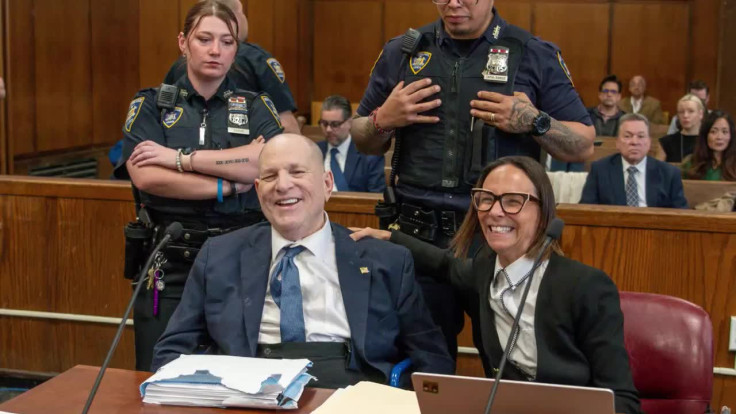
Harvey Weinstein's high-profile New York sex crimes retrial has taken a dramatic turn as the disgraced Hollywood mogul has decided not to testify in his defense. The move, announced by his legal team on Sunday, comes after days of speculation and internal debate, and just as the trial nears its conclusion with jury deliberations possibly beginning as soon as today, Tuesday, June 3.
This decision marks the third time Weinstein, 73, has chosen not to take the stand in his criminal trials, echoing his strategies in both his original 2020 New York trial and his 2022 Los Angeles case.
Weinstein's spokesperson, Juda Engelmayer, explained that while Weinstein was "eager to testify," his attorneys ultimately advised against it, citing the risk of exposing him to cross-examination on a wide range of issues beyond the current charges.
"At this juncture, doing so would expose him to scrutiny that extends well beyond the current allegations—raising topics that could unjustly undermine his credibility. Our stance is one of prudence, not avoidance," Engelmayer told Deadline. Legal experts note that testifying could have opened Weinstein up to damaging questions about his past, including prior accusations and his history of alleged misconduct, which could have swayed the jury against him.
A Retrial Shaped by Strategy and High Stakes
The retrial, which began on April 23, comes after Weinstein's 2020 rape conviction was overturned in April 2024 by New York's highest court. The court ruled that the original trial judge had erred by allowing testimony from additional accusers not directly related to the charges at hand.
This time, the defense has focused on undermining the credibility of Weinstein's accusers—former model Kaja Sokola, production assistant Miriam Haley, and actress Jessica Mann—arguing that their interactions with Weinstein were consensual and that he is being wrongfully accused.
According to ABC News, all three women gave emotional and graphic testimony, describing how Weinstein allegedly used his power in the entertainment industry to manipulate and assault them.
With closing arguments set for Tuesday, the jury—comprised of seven women and five men—is expected to begin deliberations as early as Tuesday evening. If convicted, Weinstein faces the prospect of spending the rest of his life behind bars, as he is already serving a 16-year sentence from his Los Angeles conviction, which is also under appeal. The outcome of this retrial will be closely watched, not just by Weinstein's accusers and supporters, but by the entire entertainment industry and the broader #MeToo movement, which his original conviction helped galvanize.

A New Angle: Weinstein's Public Relations Gambit
While Weinstein has remained silent in court, he has not been quiet outside it. In a recent prison interview with controversial commentator Candace Owens, Weinstein insisted he was "wrongfully accused," attempting to sway public opinion even as his legal fate hangs in the balance. This unusual PR push, combined with his legal team's calculated silence in the courtroom, highlights a dual-front strategy: fight the charges in court while waging a battle for public sympathy outside it.
As jury deliberations approach, the world waits to see whether Weinstein's silence on the stand will protect him—or seal his fate
Originally published on Enstarz




